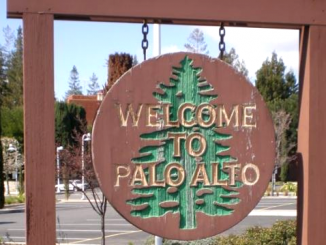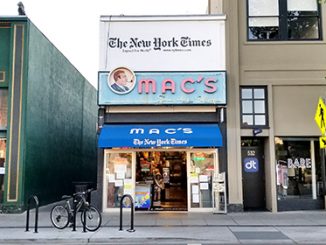
BY ALLISON LEVITSKY
Daily Post Staff Writer
As the city of Palo Alto continues to bargain quietly with union leaders on its most recent round of employee contract negotiations, four councilmen have called for the city to lift the cloak of secrecy.
In a new proposal, Vice Mayor Eric Filseth and Councilmen Tom DuBois, Greg Scharff and Greg Tanaka argue for a more transparent contract negotiations process.
“These wage, benefit and pension decisions are currently reached through essentially private negotiations, without meaningful opportunity for public examination,” the proposal states, setting its goal as “appropriate transparency.”
That means, the councilmen said, providing timely and meaningful fiscal information to the public while protecting the fairness and integrity of the bargaining process. The suggestion comes as hundreds of millions of dollars in unfunded employee pension obligations loom over the city.
As of June 2016, the city’s unfunded pension liability — the difference between what will be needed to pay employee pensions and the amount that’s been budgeted for them — was $405 million.
Many other cities face large pension gaps and rising payments. Because tentative agreements in contract negotiations don’t become public until they go to council for final approval, public input is “essentially irrelevant,” the councilmen said.
“These outcomes, such as those affecting the city’s unfunded liabilities (pension and retiree medical), are public concerns which will be borne by the community for decades, and merit meaningful public review,” the proposal says.
In most California cities, as in Palo Alto, collective bargaining negotiation sessions are confidential under the state Meyers-Milias-Brown Act of 1968.
The proposal borrows ideas from the cities of San Jose and Fullerton, which both have similar policies in place.
As in San Jose, the policy would apply to negotiations between the city and a union from the first negotiating session to the approval of an agreement, but not administrative or judicial dispute-resolution proceedings.
The city would prepare a fiscal summary of costs and liabilities associated with the union. The summary would be posted to the city website with the City Council agenda corresponding to the first council closed session with city labor negotiators.
Formal written proposals made or received by city negotiators would be posted online for public review within two days of being sent to union negotiators, per San Jose’s policy.
Council would be able to choose to authorize and direct city negotiators in open or closed session.
Council is set to discuss the proposal on Feb. 26.




HUGE progress…….. no more giving the store way either intentionally or because the City’s negotiators are imbeciles.